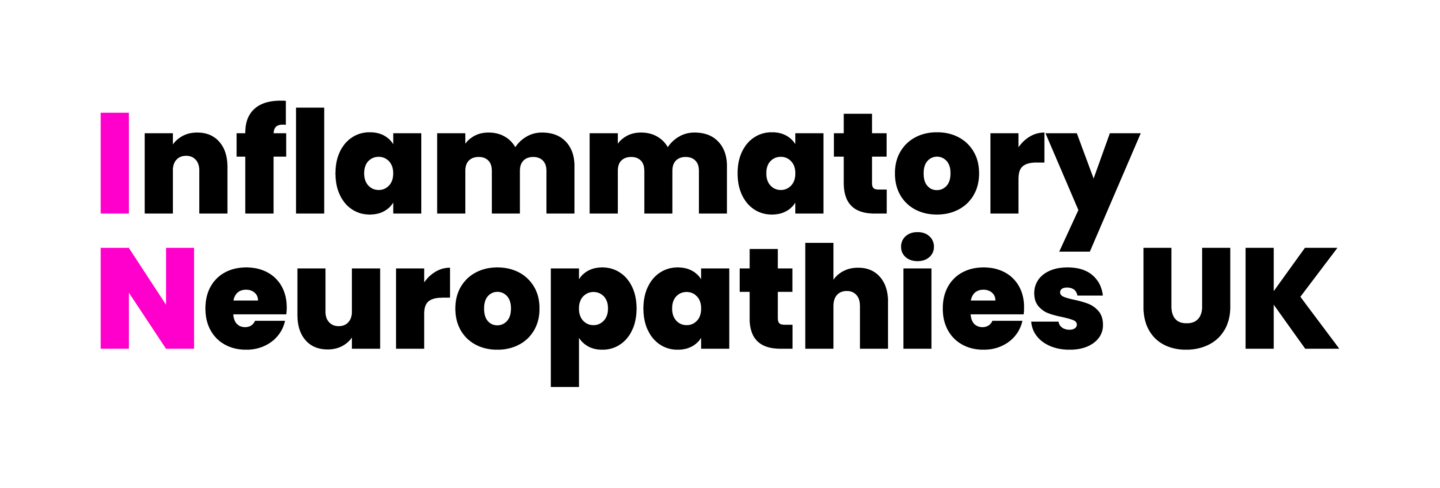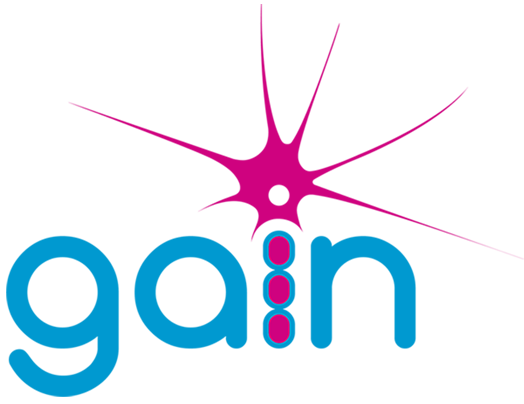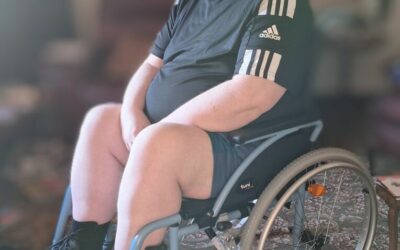Paralympic double gold-medalist, childhood GBS survivor and GAIN’s brand-new Charity Champion!
When we reached out to Paralympian cyclist Ben Watson in the summer of 2021, we knew he would be an inspiration to our members and supporters. Little did we know that a few short weeks later, he would be returning from Tokyo with not one but two gold medals around his neck!
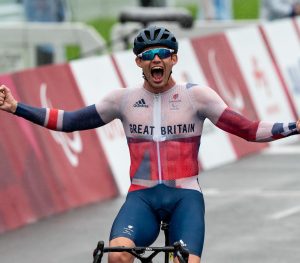
Many of you will remember reading all about Ben in the GAIN newsletter in the run-up to the Tokyo 2020 Paralympics (delayed until 2021 due to the pandemic) and some of you will have been lucky enough to meet him face to face when he visited the GAIN offices in the Autumn.
For anyone not familiar with Ben’s story, In 2003, at the age of 14, Ben was diagnosed with Guillain-Barré syndrome, causing him to lose control of his legs, as well as residual weakness in other areas. “I was paralysed in hospital for a couple of months, then I came out of hospital and endured physio. I was in a wheelchair for 9 months and crutches for 18 months after that.”
“So effectively I had to learn to walk again, and I’ve been left with weakness in my hands. Below my knees I don’t have much movement, sensation, control, or circulation either,” he says. This meant he could no longer play football or rugby so found himself borrowing a mountain bike from a friend.
“Mountain biking was just something I did all the way through university, and I never even thought about parasport as an option.”
However, in 2016 after the Rio Olympics, British Cycling held a Talent ID Day and a friend encouraged him to go along to see what may come of it. The session was a success for Ben as he was then brought into the academy in which he was classified as a C3 rider.
Tokyo was Ben’s first time competing at a Paralympic event. “The last five years of hard work are now paying off and I still don’t think it’s really sunk in and it’s so awesome to get that.
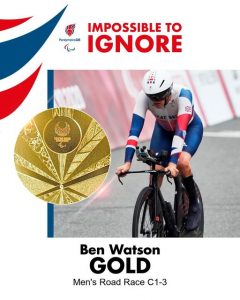
Ben picks up a gold for the Cycling Road Men’s C3 Time Trial on day 7 of the Tokyo 2020 Paralympic Games
Just five years after being inspired by the Rio 2016 Paralympic Games to take up parasport, Ben won two gold medals at Tokyo 2020 in the Time Trial C3 and the Road Race C1-C3, having already earned himself medals at three consecutive UCI Para-cycling Road World Championships.
Talking to the Derby Telegraph following his success in Tokyo, Ben explained;
“The reason I’m here is when I was 14 I caught Guillain-Barré syndrome which is a neurological disorder. I went very quickly from being able to run and walk to being paralysed in hospital. It probably took me ten years to get over it and accept I’d got a disability, and that’s why I got into this late – because I was working and doing stuff. Cycling has been a huge changer in my life. Obviously, the illness has been a huge life-changer too, but it makes you a stronger person. It helps in a situation like this, you know you can put it all out.”
We were delighted when Ben returned from Tokyo and agreed to become a Charity Champion for GAIN, engaging with the public and helping us raise awareness and understanding of GBS and CIDP.
He certainly made an impression during our Autumn Open Day, when he brought along his cycle and medals for inspection, and we look forward to welcoming to other events over the coming years.

What does Classification C3 mean?
Paralympic sport is classified by the type of sport, and the type and level of disability, so athletes competing together are deemed to have comparative levels of disability.
Cycling classifications start with a ‘C’, and Ben’s classification falls within C1-5
Cycling sport classes C1-C5
Athletes who are able to use a standard bicycle (with approved adaptations) compete in the five sport classes C1-5.
The sport class profiles include athletes with limb deficiency, impaired muscle power or range of motion, and impairments affecting co-ordination, such as uncoordinated movements and involuntary movements.
Sport class C1 is allocated to athletes with the most severe activity limitation, while the sport class C5 is allocated
